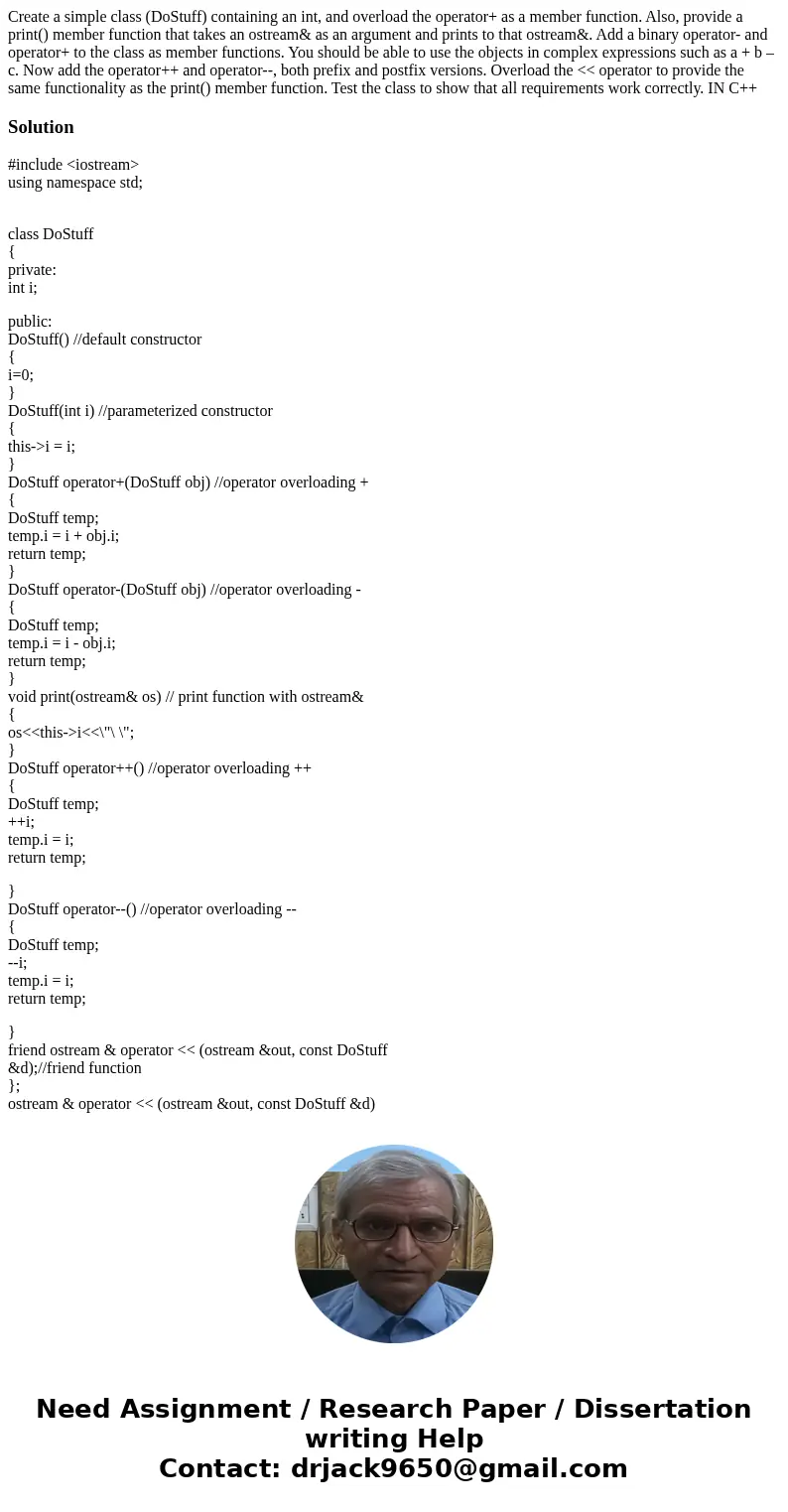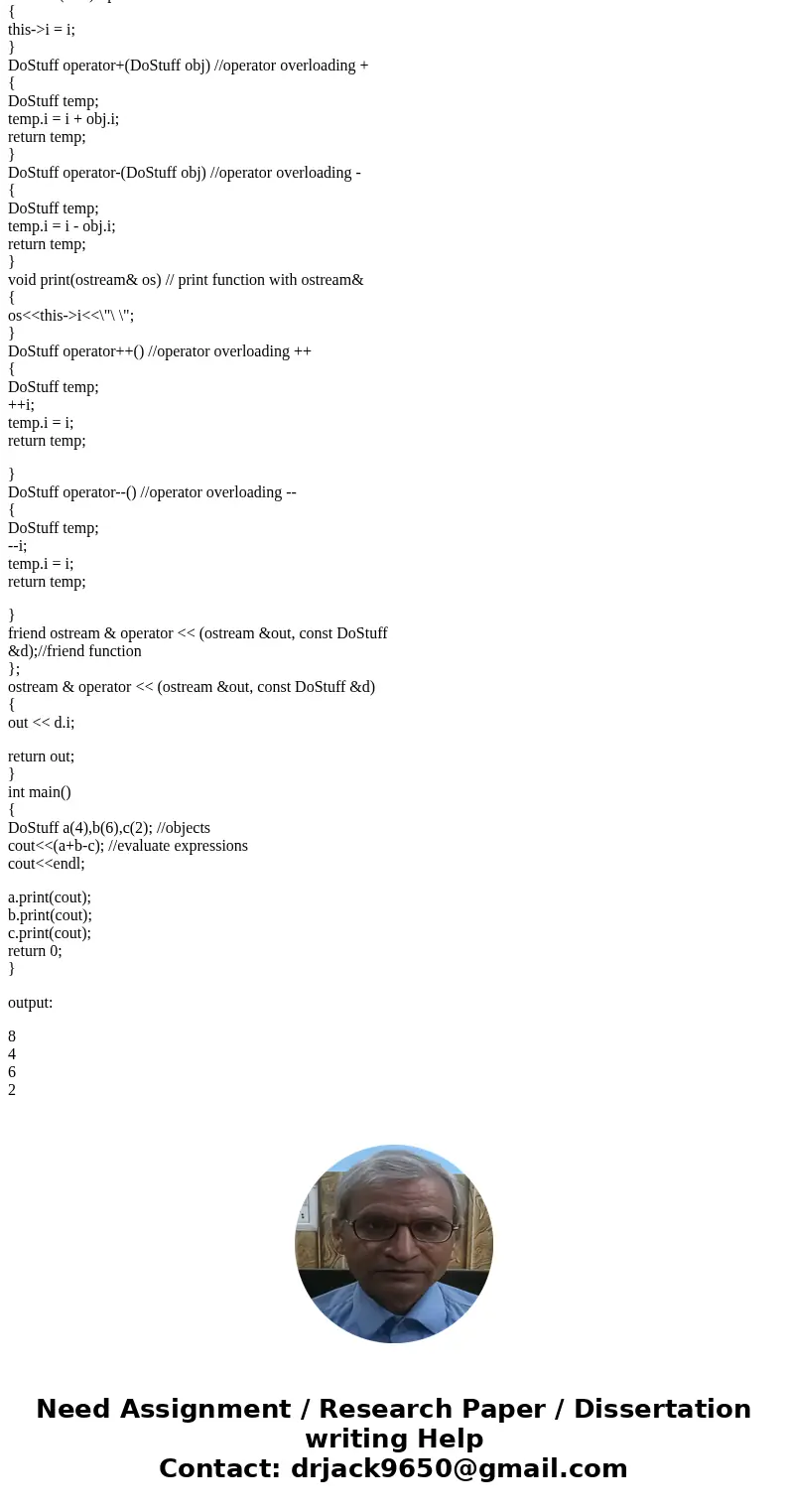Create a simple class DoStuff containing an int and overload
Create a simple class (DoStuff) containing an int, and overload the operator+ as a member function. Also, provide a print() member function that takes an ostream& as an argument and prints to that ostream&. Add a binary operator- and operator+ to the class as member functions. You should be able to use the objects in complex expressions such as a + b – c. Now add the operator++ and operator--, both prefix and postfix versions. Overload the << operator to provide the same functionality as the print() member function. Test the class to show that all requirements work correctly. IN C++
Solution
#include <iostream>
using namespace std;
class DoStuff
{
private:
int i;
public:
DoStuff() //default constructor
{
i=0;
}
DoStuff(int i) //parameterized constructor
{
this->i = i;
}
DoStuff operator+(DoStuff obj) //operator overloading +
{
DoStuff temp;
temp.i = i + obj.i;
return temp;
}
DoStuff operator-(DoStuff obj) //operator overloading -
{
DoStuff temp;
temp.i = i - obj.i;
return temp;
}
void print(ostream& os) // print function with ostream&
{
os<<this->i<<\"\ \";
}
DoStuff operator++() //operator overloading ++
{
DoStuff temp;
++i;
temp.i = i;
return temp;
}
DoStuff operator--() //operator overloading --
{
DoStuff temp;
--i;
temp.i = i;
return temp;
}
friend ostream & operator << (ostream &out, const DoStuff
&d);//friend function
};
ostream & operator << (ostream &out, const DoStuff &d)
{
out << d.i;
return out;
}
int main()
{
DoStuff a(4),b(6),c(2); //objects
cout<<(a+b-c); //evaluate expressions
cout<<endl;
a.print(cout);
b.print(cout);
c.print(cout);
return 0;
}
output:
8
4
6
2


 Homework Sourse
Homework Sourse